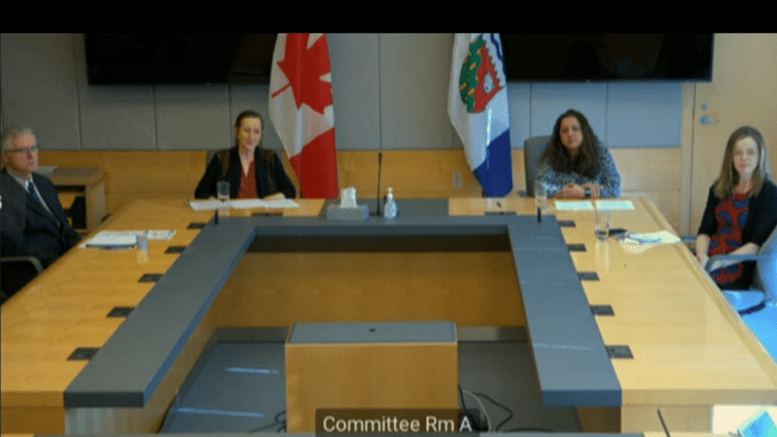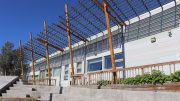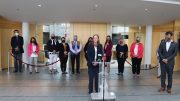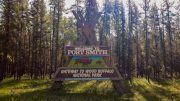“Knowing what communities COVID-19 is in will not make you safer.”
Premier Caroline Cochrane said this while addressing media and residents Saturday morning after the previous day’s confirmation of two more cases of the virus in the NWT.
“What makes you safer is respecting the orders of the chief public health officer,” Cochrane added, “the orders that (Dr. Kami Kandola) has given to keep all residents in the NWT safe.”
Dr. Kandola has maintained that if a resident in a small community is confirmed to have the virus, her office would not say which community.
That’s exactly what happened in one of the latest cases, where a resident of Deninu K’ue (Fort Resolution) contracted COVID-19.
Despite the GNWT not sharing the community, it took fewer than 12 hours for multiple local leaders to confirm the resident is from Fort Resolution. They are now being treated at Stanton Territorial Hospital in Yellowknife.
First, Deninu K’ue First Nation Chief Louis Balsillie published a Facebook post, saying government officials had not informed him.
Later, Tu Nedhé-Wiilideh MLA Steve Norn posted a video calling on Fort Resolution residents to stay patient and disciplined to combat the virus.
“Nothing is going to be gained by bickering and petty arguments,” he said.
He also urged residents to follow Dr. Kandola’s orders to maintain physical distancing and proper hygiene.
Here is a PSA for my constituency and for my home community of Deninu K'ue. I am not taking the recent news we received lightly and I am doing my very best in serving Tu Nedhe-Wiliideh. I care deeply about our safety and sincerely hope my message gets through.
Posted by Steve Norn on Friday, April 3, 2020
Travel to small community being investigated
All residents returning to the NWT have been ordered to self-isolate in one of the regional centres.
In the Fort Resolution case, the individual managed to travel back to their home community.
Ivan Russell is the manager of emergency measures, which closed all highways into the territory and set up checkpoints on Highway 1.
CKLB asked him if there would be any changes now that a resident managed to go back to their community.
“We’re not certain of the circumstances of how a person came in,” he said.
Dr. Kandola issued the order to self-isolate in one of the regional centres on March 21. According to the government, the individual returned to the NWT on March 22.
Russell said, “it took time to roll out our arrangements for all our checkpoints, so we didn’t have immediate 24-hour coverage.” He added that since having 24-hour coverage he’s not aware of any issues.
Dr. Kandola was asked if her office would penalize the individual for not self-isolating in Hay River.
The patient is being treated in hospital. Dr. Kandola said the focus is on their health and recovery.
She added, “We need to find out more circumstances around why this person went directly to the community.”
Informing communities
CKLB asked Dr. Kandola what the process is to inform community leaders if a resident is confirmed to have COVID-19.
She said, “It’s never been our process to take a confidential report on public health disease and immediately inform (leaders)… It would be inappropriate.”
During the conference Dr. Kandola said that part of the reason her office won’t release the community is to prevent the stigmatization of residents who have the virus.
“One of our big concerns is the safety of people who have their rights violated by public dissemination of information,” she said.
She added that threats against a person, their family or personal property would all be investigated.
Both Dr. Kandola and Premier Cochrane also alluded to the possibility of stronger enforcement if more cases of COVID-19 develop in the territory.
Cochrane pointed to the lengthy timeline of combatting the virus as a challenge.
“Our fear is that people will (become) desensitized, that people will forget because we’ve locked down our borders. If people think they’re safe, they’re not safe… We’re putting the enforcement measures in place. We’re not going to just run around with enforcement for no reason but if we need to, and people are blatantly disobeying the order, we are ready to step up. We made a commitment to our residents that we would be aggressive in trying to protect our residents and we will stand by that commitment.”









